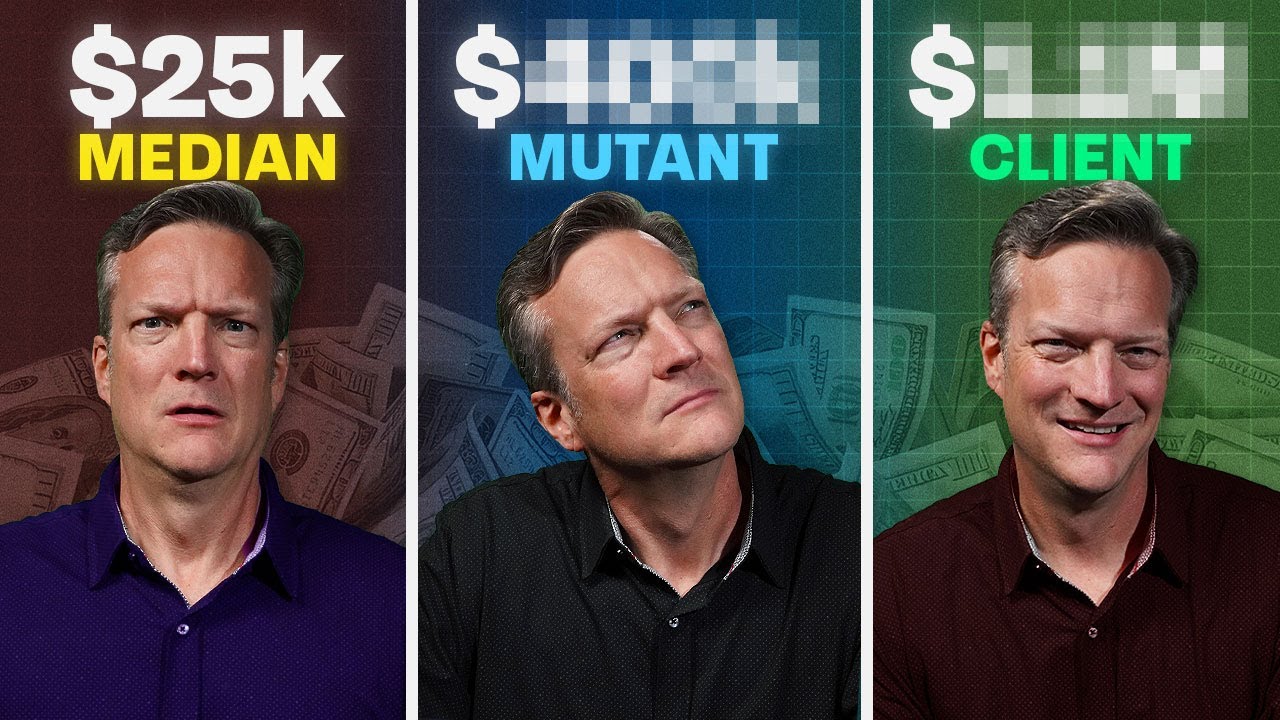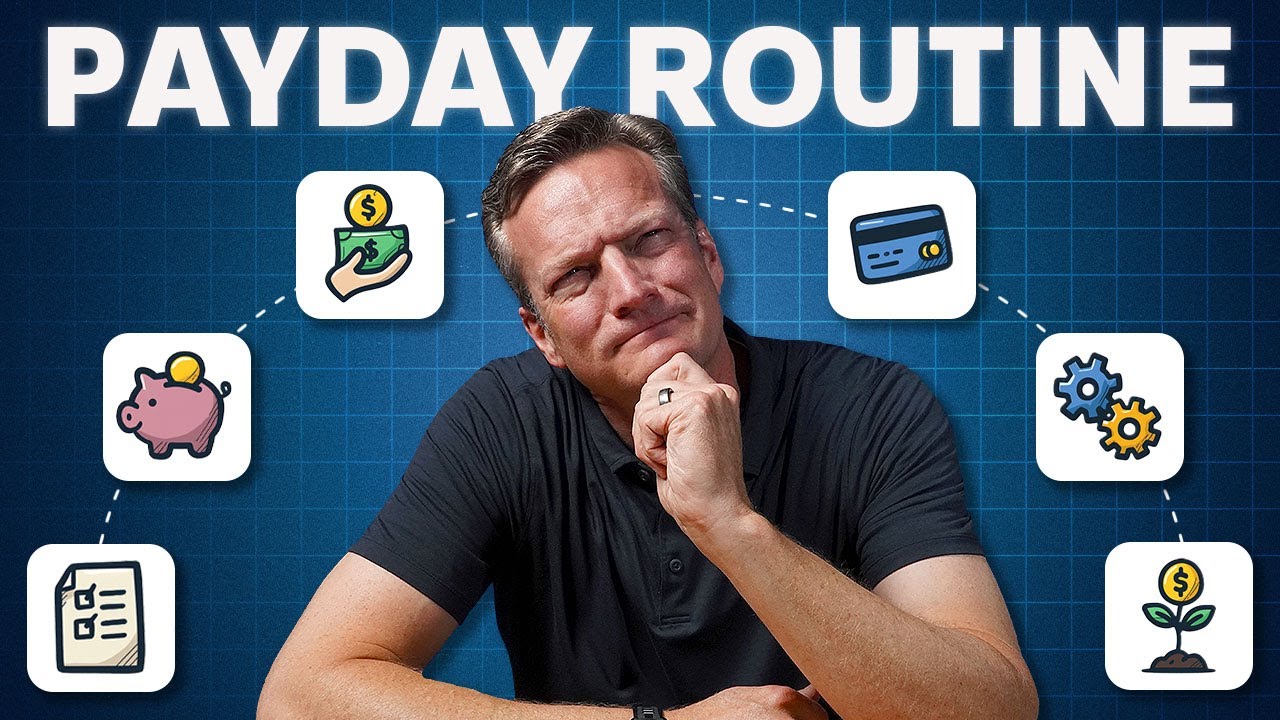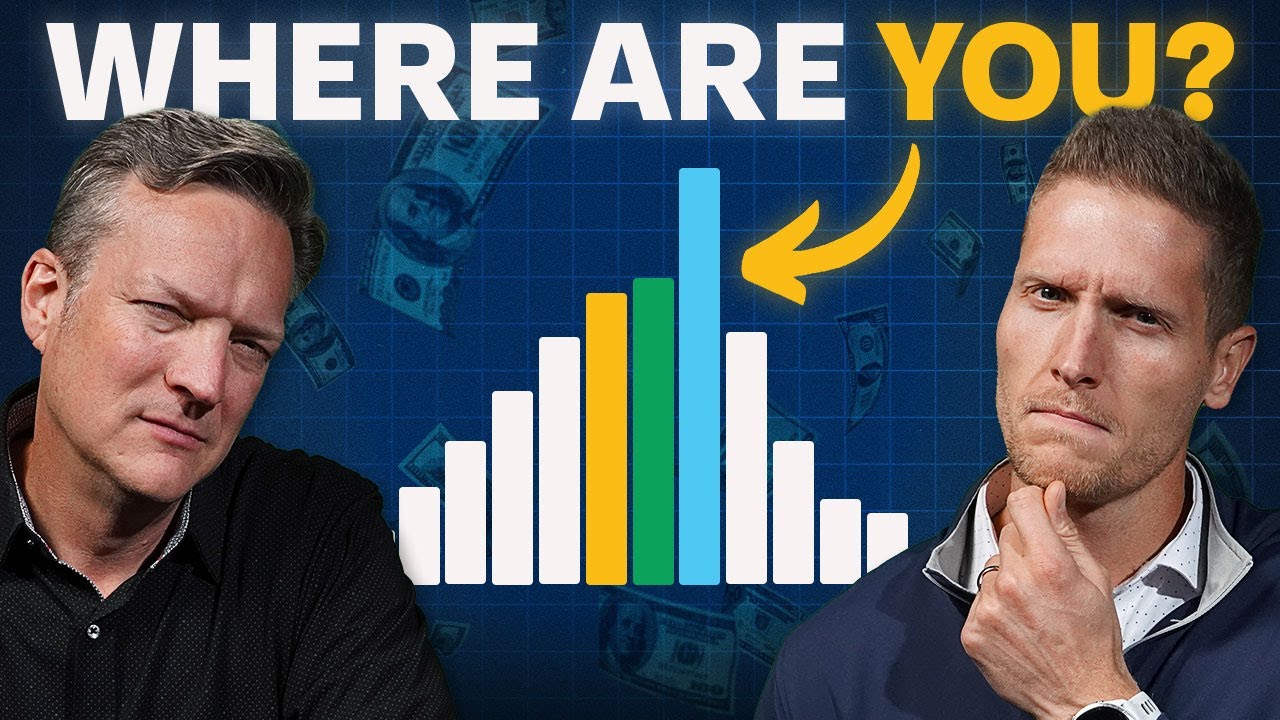Next up, we've got Kyle M's question. He says, "I've just gone full time as a freelancer. What are the best options to set my wife and me up for success now and in retirement? My wife pays into a pension at work, and we are fully funding our Roths. Love it."
"It's interesting, right? Full-time as a freelancer means you're now self-employed, congratulations, you're now an entrepreneur, that's a fun entrepreneur. You know, you watch dating shows, and they always have somebody who lists themselves as an influencer entrepreneur, and I'm always like, 'What is that person?' So, you are a self-employed individual, which means that opens up some opportunities for you from a retirement planning standpoint. But before we even get into that, for someone who used to have a side gig and is now doing this full time, I think before we even talk about retirement plans, Brian, I think it'd be interesting to hear you talk about the financial order of operations. It still applies. I think that step four, emergency reserves, becomes so important because now that you are self-employed, now that you are the boss, it may be prudent for your emergency fund to be larger than it would have been otherwise. So, I would go back and revisit the
financial order of operations."
"Brian, can you order the thing for me? Oh yeah, if you want to go to
moneyguy.com/resources, you can download our free deliverable, you can even do our deep dive at
learn.moneyguy.com. The other thing I'll say, Brian, I think this is important before we even talk about retirement planning, is when you let your side gig turn into your full-time gig, you need to approach it as a full-time job. Treat your business like a business. Understand the money you have going in, the money you have going out. Make sure the money you have going out is justifiable so that you're running a nice, healthy business. Once you've done that, and then you get to the point where you want to start saving for the future, I've got my baseline built. What are some solutions for small business owners when it comes to saving for retirement and building for both you and a spouse?"
"Yeah, I think it's so cool. This is the greatest time to build wealth for entrepreneurs because, for most people, the first stop in the past has always been the SEP IRA. The SEP IRAs were always so powerful for entrepreneurs and side hustlers and everybody else because they could go back in time. Meaning that when you started doing your tax prep, you made money last year, and that's always a congratulations moment. Now, it's always shocking when you do your taxes or your financials and go, 'Wow, I got to figure out how I can get rid of some of this from a tax perspective.' What better way than to essentially let the government fund 25% to 37% or even more, if you're dealing with your state income tax, of this provided deduction by funding retirement? That's where SEP IRAs have always been awesome because they're so easy to set up. They let you file until the extension deadline of your business and personal tax returns. It's a really powerful tool."
"But there's been a change over the last decade, really, with new legislation that passed in the last year or so. Now, Solo 401(k)s are super retro, let you go back in time just like SEP IRAs. But in addition, because remember, SEP IRAs always had to be funded by employer money, that was always the catch. It wasn't something you, because remember, when you're an entrepreneur, you're working in the business, so you're an employee, but you're also an investor because you're funding this endeavor. So, the government lets you recognize both of those elements. That's why when you have S-Corps, you see people who will pay themselves a salary for when they're working in the business, and then they'll have the dividend or distributions they take for being the investor or the owner of the business. Well, the same thing kind of works with the way this all gets funded. With SEPs, they only allow the employer, the profit-sharing, to go in. When you get a Solo 401(k), it not only lets you do the profit-sharing or the employer, but it lets you do the salary deferral as the employee. That's a big number, I mean, $22,500. This is how you talk about the 415 limits. When we get up to $68,000 of savings, you're like, 'Who puts that much money in their retirement accounts?' It is the entrepreneurs because you're essentially letting the government fund a lot of that. That's the step I would have, Kyle."
"But I want to tell you a cautionary thing, though. The government's not foolish. They set up these Solo 401(k)s, they're super easy because that's the thing. SEP IRAs, you just had to file a 5305, it wouldn't even file, you just filled it out and then kept it in a file cabinet or stored it away, scanned it and put it out on the cloud. That was it, something you had to keep internally. To file Solo 401(k)s, they've tried to make it just as easy from an administration standpoint. You just file some paperwork and keep it internally, but there's a big trap that I think a lot of small businesses fall into. Pay attention to how much you have in that Solo 401(k). As soon as it crosses $250,000, you have the requirement of filing an annual 5500 with the government. And by the way, guys, they're serious about this. I just had a client who got a notice. Now, the good news is they're going to be fine. But they got a huge, I mean, it's close to a six-figure notice from the IRS for not filing an information return on the 5500. Because they're charging something like $250 or $260 a day penalty if you don't file this 5500. It's a huge deal. So, I'm just telling you, take advantage of the Solo 401(k), but please respect the annual 5500 or 5500EZ filing requirement. It's just an informational return. There will be no taxes due, but do it. Make sure you file that so you don't have to worry about if your account's only $100,000. No big deal. But I also want to caution you if you're rolling outside assets into the Solo 401(k), that also has an impact."
"Those, Kyle, I know you're going to have success. I'm excited for you. I think you covered a lot with the cash reserves and the last business entrepreneur discussion. Don't get busy doing nothing. I wasted a lot of my initial stages of business doing a lot of what I was good at, which was creating outstanding financial statements. But that didn't get any new clients, didn't get any new business coming in because I didn't like calling people. I didn't like talking to people. I didn't like networking. So, I had to have a 'buck up' conversation with myself and say, 'Go do the stuff that actually helps you be where you want to be, not just doing the stuff that feels comfortable and safe.' Because I think that's the trap a lot of us entrepreneurs fall into. We do what we do best when we might need to be out there shaking the trees to see how we grow. And then, you talked a lot about how to save for taxes. Even just accounting for taxes is a huge thing. Don't forget that as a self-employed individual, taxes are going to be some additional taxes that you did not have to pay previously. Make sure you're holding a little bit of that aside so that when you do your tax return, you don't have a big 'uh-oh' and a big tax bill you were not planning on."













